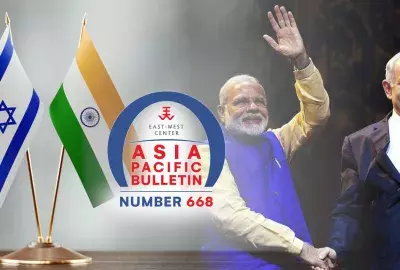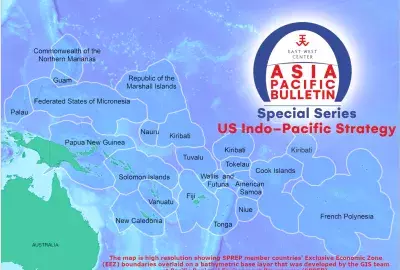The Geopolitics of the Philippines and the U.S.-Philippine Alliance series comprises five Filipino perspectives on foreign policy under Duterte, and the balancing act of maintaining relations with the United States and China, as well as with other regional powers and domestic forces. This series was published in cooperation with Ateneo School of Government, Ateneo University de Manila.
Julio Amador and Deryk Baladjay, Senior Research Fellow and Research Assistant, respectively, at the Ateneo School of Government in the Philippines, explain that: “The Filipino public is not supportive of the Duterte administration’s approach toward China.”
Sheena A. Valenzuela, Research Associate at the Ateneo School of Government in the Philippines, explains that: “The Philippines downplayed the threat of the virus and waited until transmission had accelerated within its borders before implementing countermeasures.”
Jonina O. Fernando, Master’s student in Public Management at the Ateneo School of Government in the Philippines, explains that: “Despite its maritime dispute with China… the Philippines signed on as the last founding member of the Chinese-led Asian Infrastructure Investment Bank.”
Denise Layla P. Miram, Master’s student in Public Management at the Ateneo School of Government in the Philippines, explains that: “While the government maintains that it is pursuing an 'independent foreign policy,' many experts have criticized the administration’s supposed strategy for its lack of clarity and position.”
Reiñer Subijano, Master’s student in Public Management at the Ateneo School of Government in the Philippines, explains that: “States draw on the international environment of legal resources in order to conduct diplomacy and in doing so they remake them.”
Click Here to view more titles from the Asia Pacific Bulletin
The Geopolitics of the Philippines and the U.S.-Philippine Alliance series comprises five Filipino perspectives on foreign policy under Duterte, and the balancing act of maintaining relations with the United States and China, as well as with other regional powers and domestic forces. This series was published in cooperation with Ateneo School of Government, Ateneo University de Manila.
Julio Amador and Deryk Baladjay, Senior Research Fellow and Research Assistant, respectively, at the Ateneo School of Government in the Philippines, explain that: “The Filipino public is not supportive of the Duterte administration’s approach toward China.”
Sheena A. Valenzuela, Research Associate at the Ateneo School of Government in the Philippines, explains that: “The Philippines downplayed the threat of the virus and waited until transmission had accelerated within its borders before implementing countermeasures.”
Jonina O. Fernando, Master’s student in Public Management at the Ateneo School of Government in the Philippines, explains that: “Despite its maritime dispute with China… the Philippines signed on as the last founding member of the Chinese-led Asian Infrastructure Investment Bank.”
Denise Layla P. Miram, Master’s student in Public Management at the Ateneo School of Government in the Philippines, explains that: “While the government maintains that it is pursuing an 'independent foreign policy,' many experts have criticized the administration’s supposed strategy for its lack of clarity and position.”
Reiñer Subijano, Master’s student in Public Management at the Ateneo School of Government in the Philippines, explains that: “States draw on the international environment of legal resources in order to conduct diplomacy and in doing so they remake them.”
Click Here to view more titles from the Asia Pacific Bulletin








